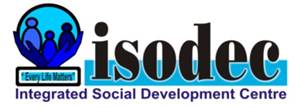Pregnant and lactating women are advised to be cautious about consuming seafood such as shrimp, lobsters, and fish like tuna. This is because these foods may contain high levels of mercury and other heavy metals that can potentially affect the cognitive development of babies.
Professor Richmond Aryeetey, Dean of the University of Ghana School of Public Health, highlighted that a study by the University revealed that almost all Ghanaians were currently exposed to mercury in water bodies, which is subsequently absorbed by fish and seafood widely consumed.
“At present, there is no policy concerning fish and mercury. However, there is evidence that when smaller fish consume methylmercury, they are consumed by larger fish, which accumulate even higher levels of mercury. Therefore, I would advise pregnant women to consume smaller fish,” he stated.
He informed the Ghana News Agency (GNA) that the significant release of mercury into the environment, soil, and river sediments without containment efforts was a cause for concern, especially as children exposed to mercury could suffer severe neurological effects.
Prof. Aryeetey emphasized that the damage caused by the introduction of heavy metals into the bodies of babies during pregnancy and breastfeeding at their developmental stages was irreversible.
“Mercury is a metal, but when it’s burned and released into the air and water, it is transformed into a poisonous substance called methylmercury. This substance is then consumed by fish and other seafood. Smaller fish cannot accumulate as much methylmercury as larger fish, which subsequently consume the smaller fish,” he explained.
Prof. Aryeetey further explained that approximately 81 tons of mercury are released into the environment annually, primarily through amalgamation and the burning of amalgam. Illegal mining activities release toxic chemicals that pose long-term health risks, including functional impairment or disability to miners and bordering communities.
“Heavy metals generated during mining, when the earth is excavated, affect various parts of the body, including the nervous system, lungs, skin, kidneys, brain, and reproductive organs. This increases the public’s risk of hypertension, heart attacks, and kidney failure,” he warned.
Mercury is a naturally occurring element found in air, water, and soil. Even small amounts of exposure to mercury can lead to serious health problems and pose a threat to a child’s development during pregnancy and early life.
Mercury can have toxic effects on the nervous, digestive, and immune systems, as well as on the lungs, kidneys, skin, and eyes. The World Health Organization (WHO) considers mercury one of the top ten chemicals or groups of chemicals of major public health concern.
People are mainly exposed to methylmercury, an organic compound, through the consumption of fish and shellfish containing this compound. The inhalation of mercury vapour can produce harmful effects on the nervous, digestive, and immune systems, lungs, and kidneys, and it can be fatal. The inorganic salts of mercury are corrosive to the skin, eyes, and gastrointestinal tract and can induce kidney toxicity if ingested.
Neurological and behavioural disorders may be observed after inhalation, ingestion, or dermal exposure to different mercury compounds. Symptoms can include tremors, insomnia, memory loss, neuromuscular effects, headaches, and cognitive and motor dysfunction.
Source: GNA














